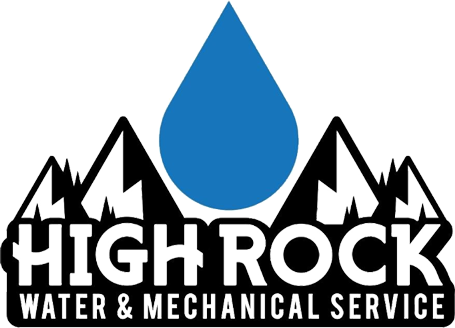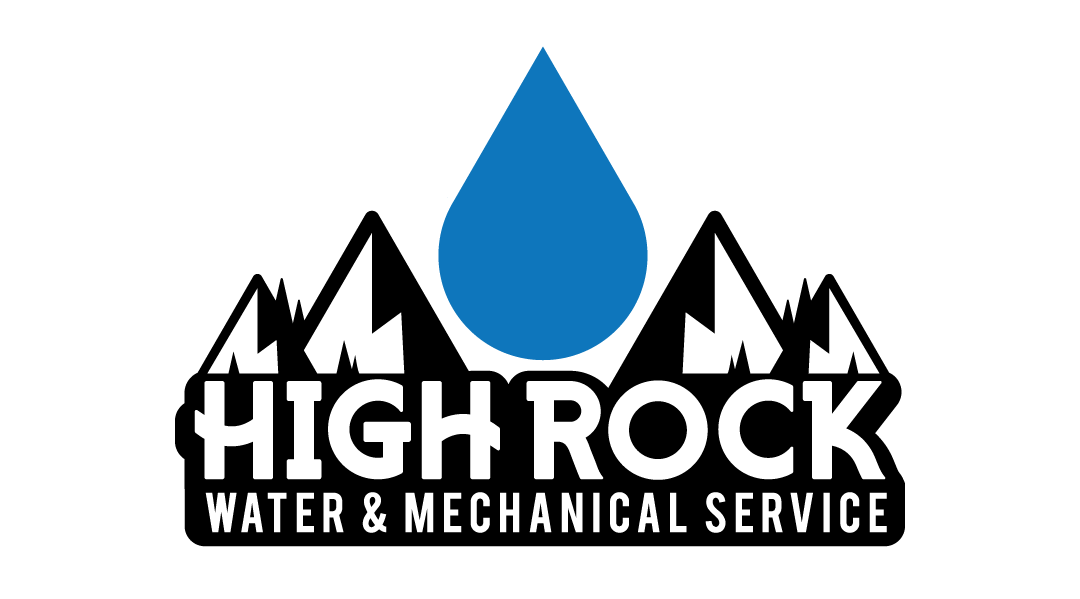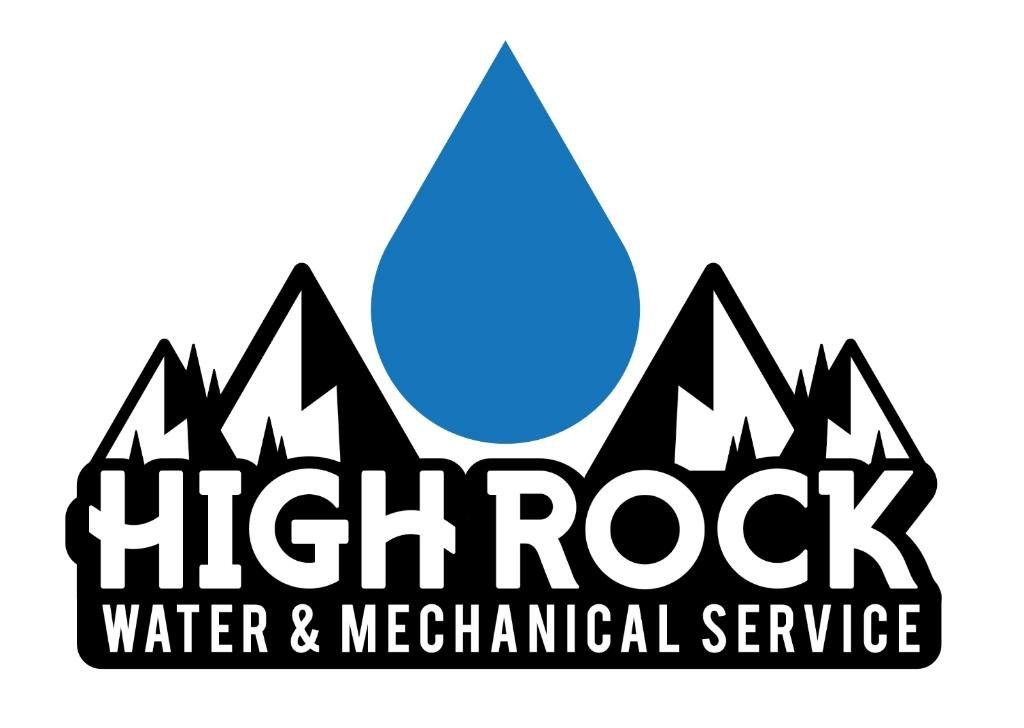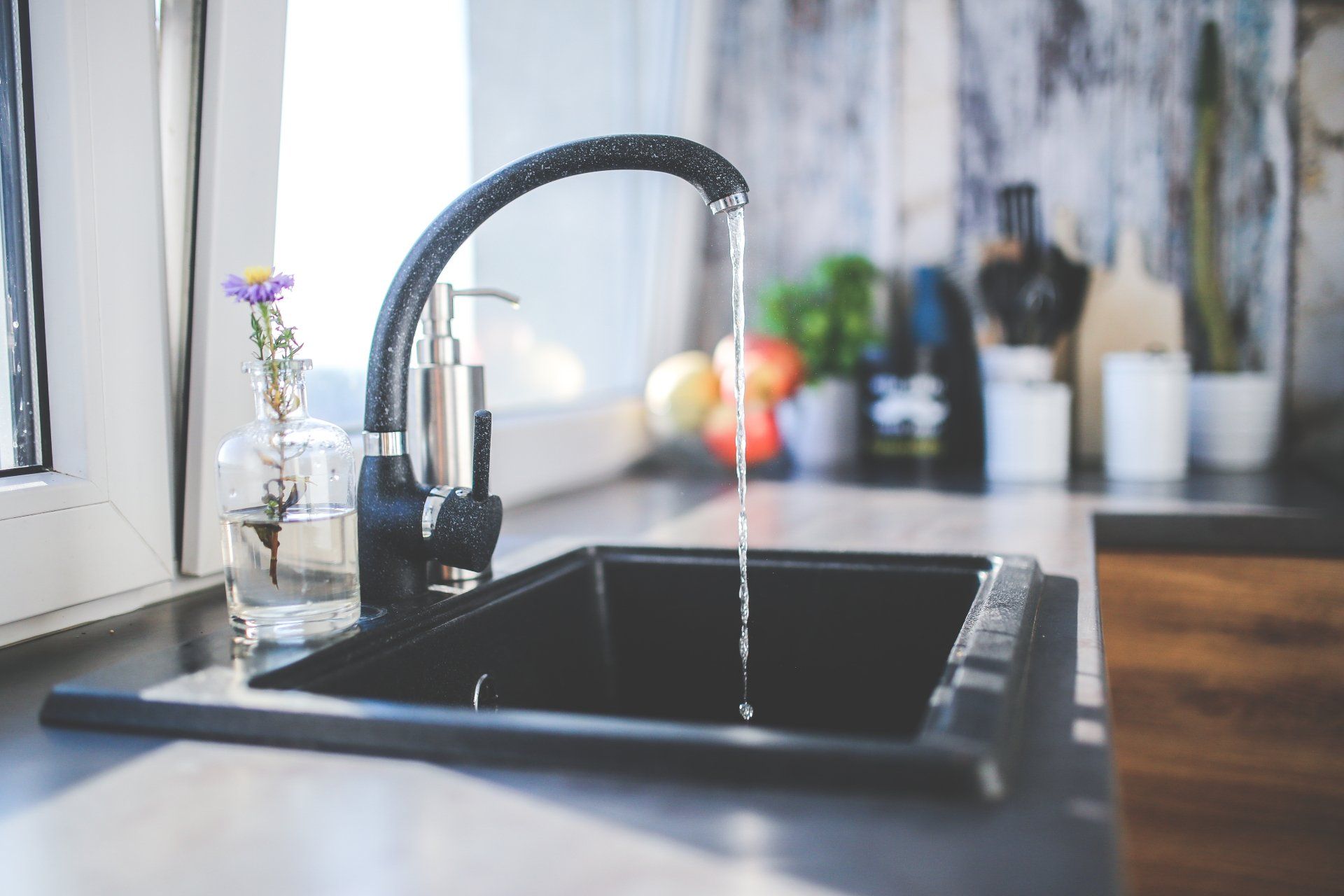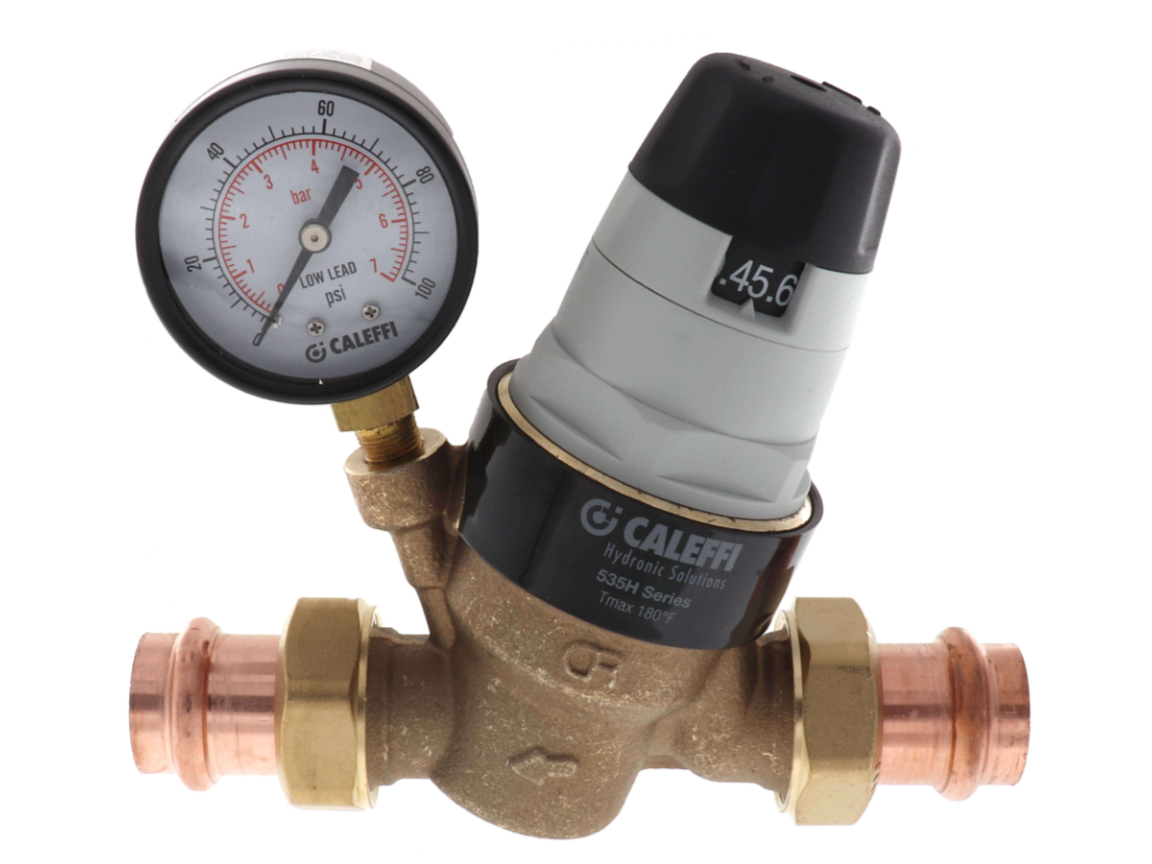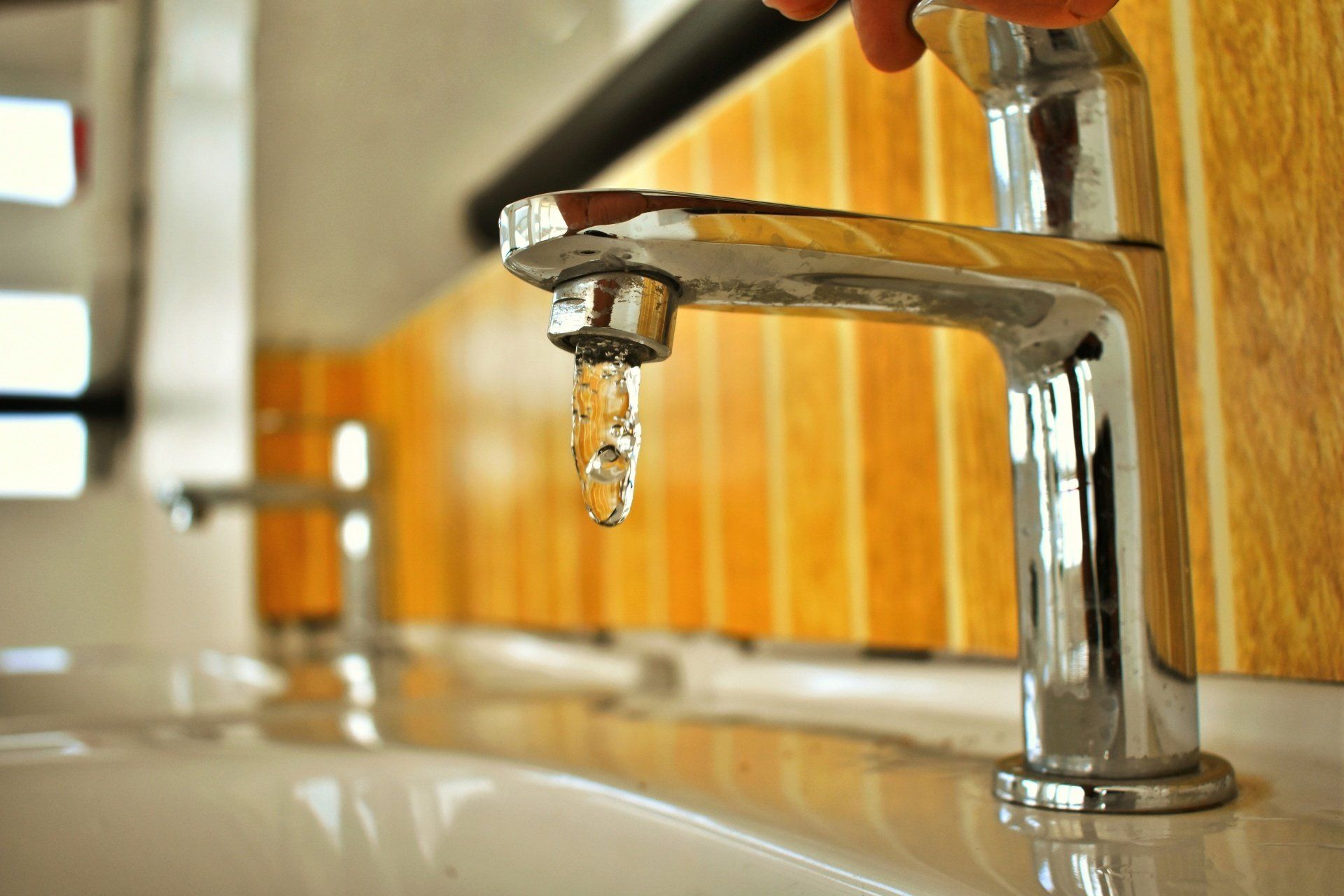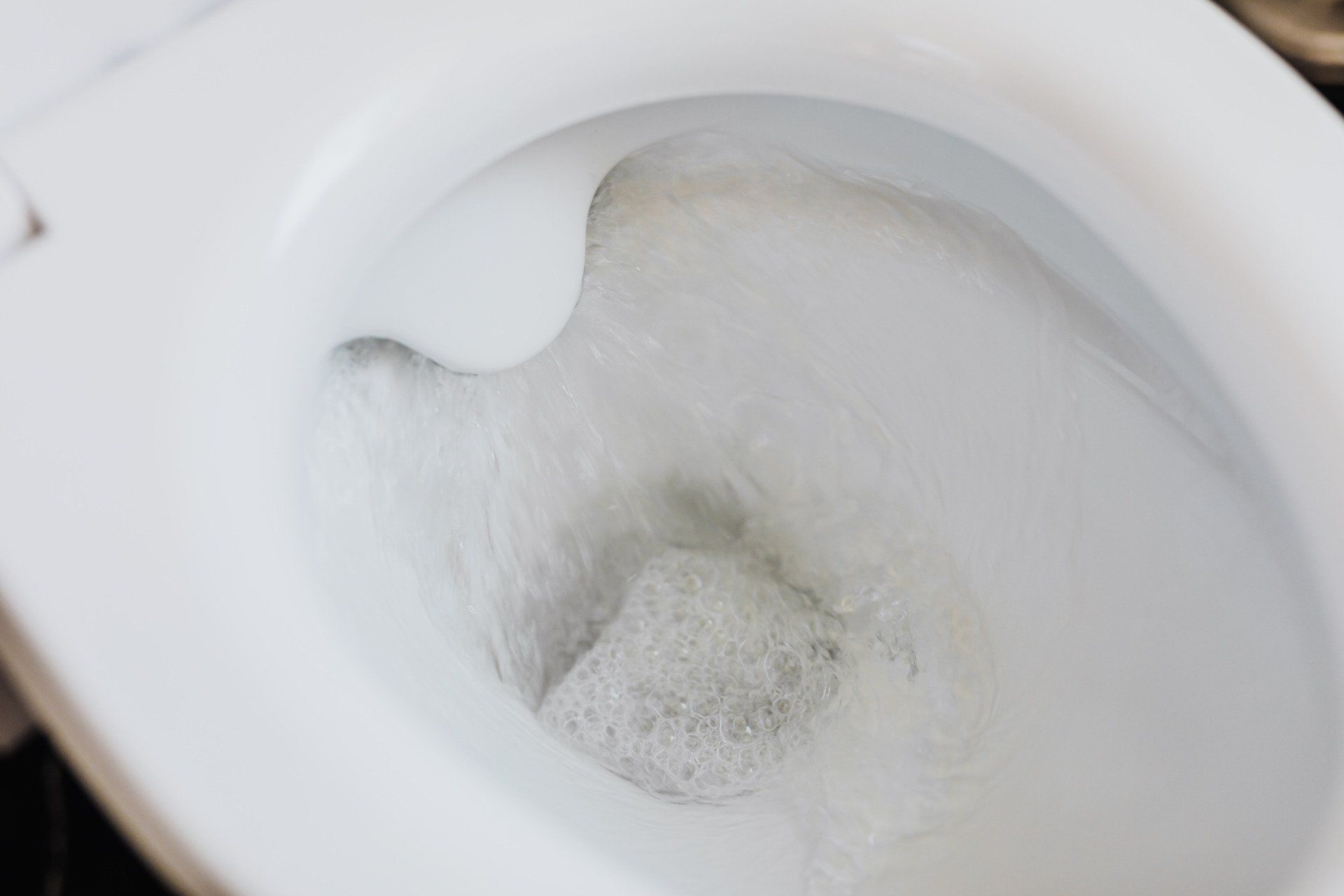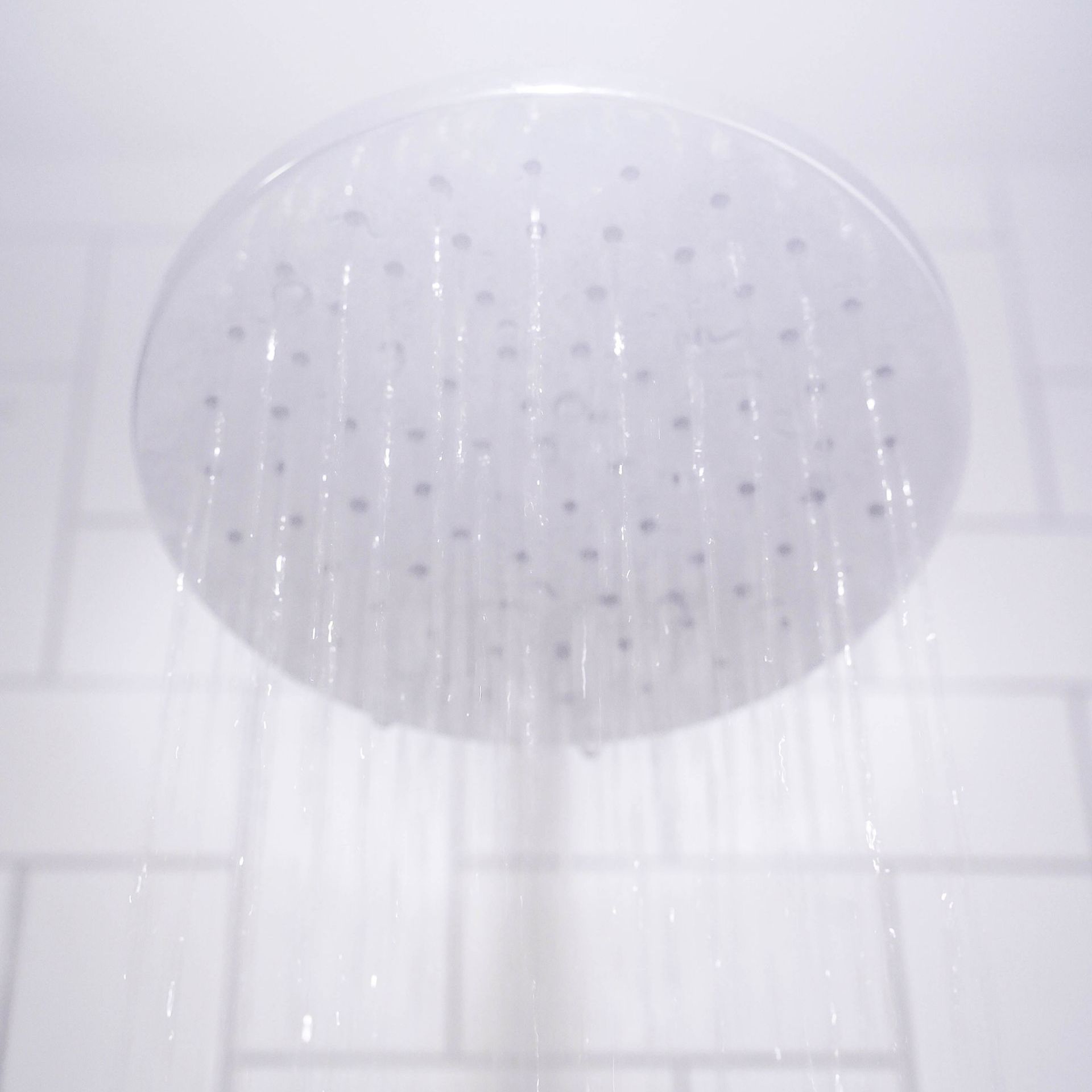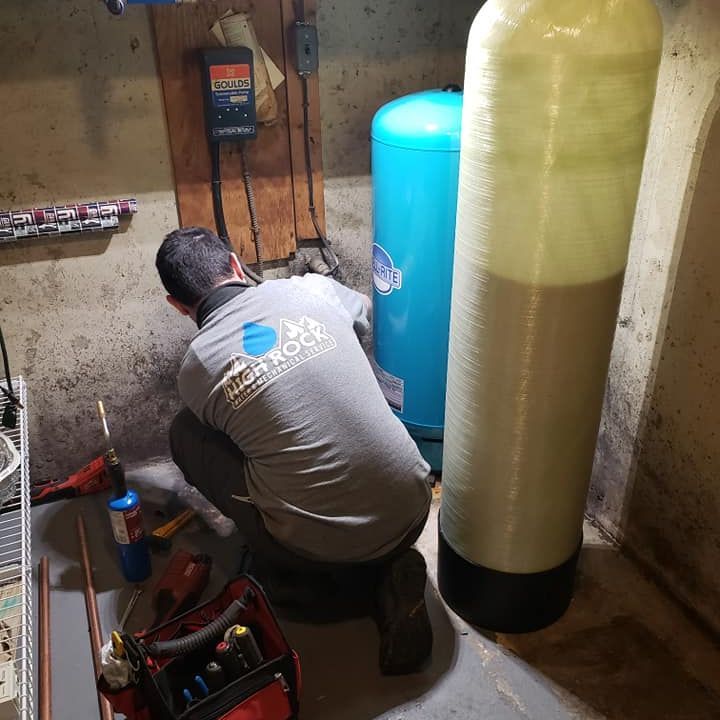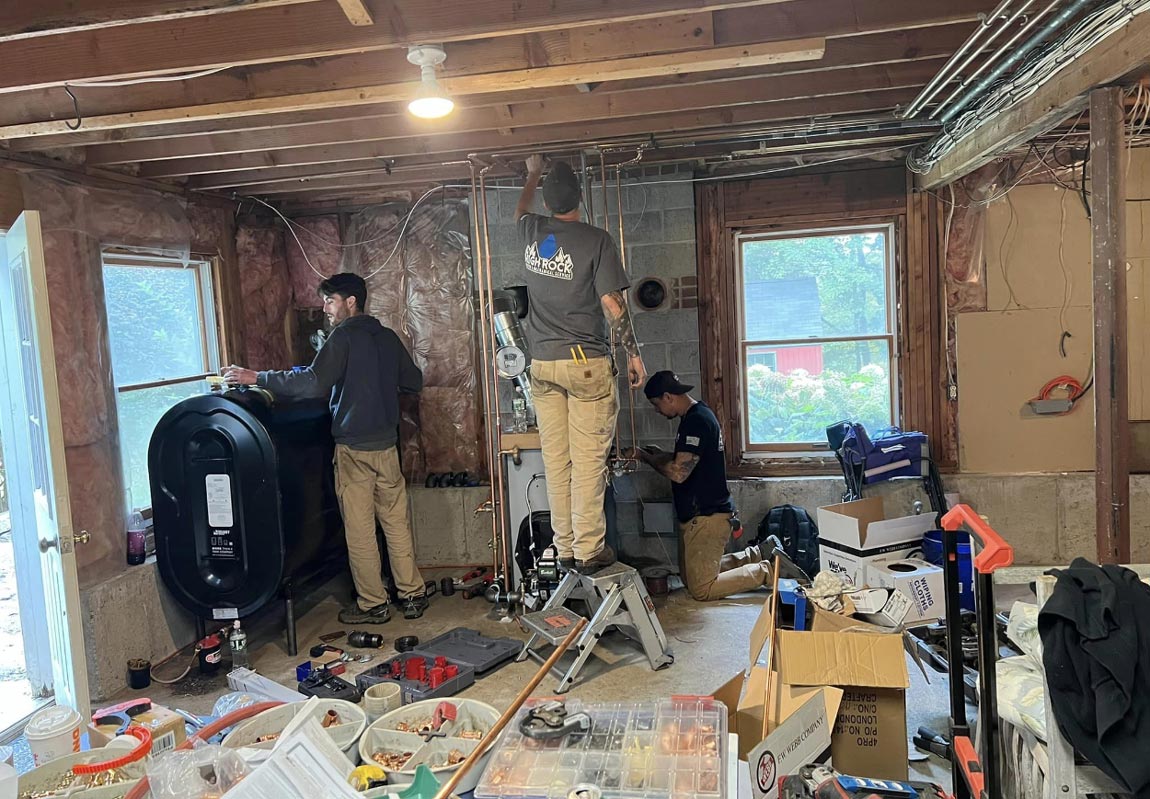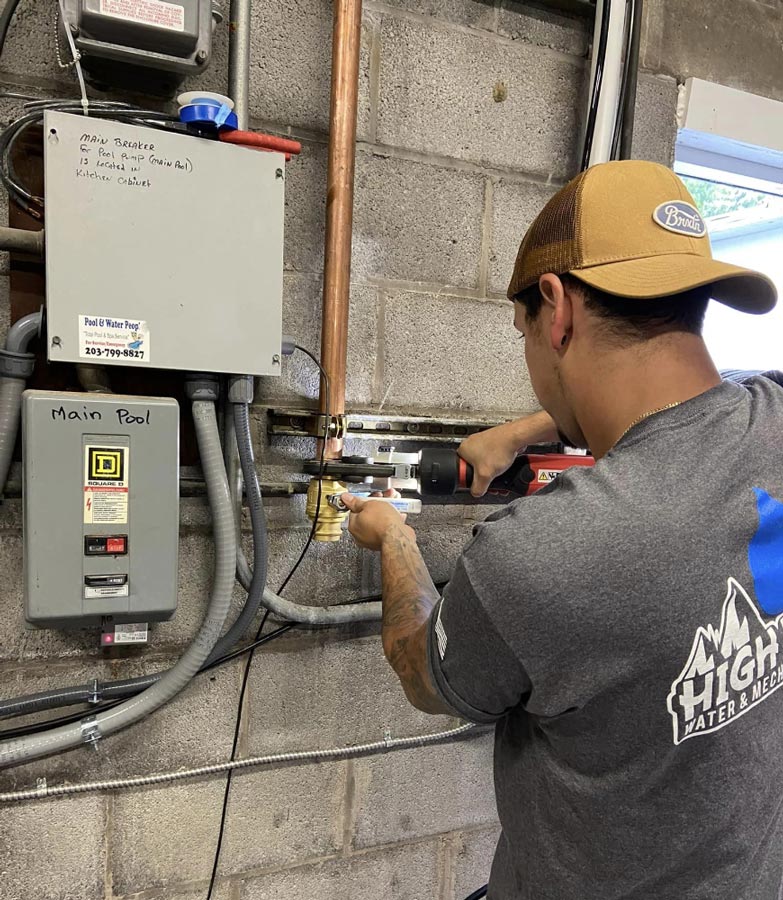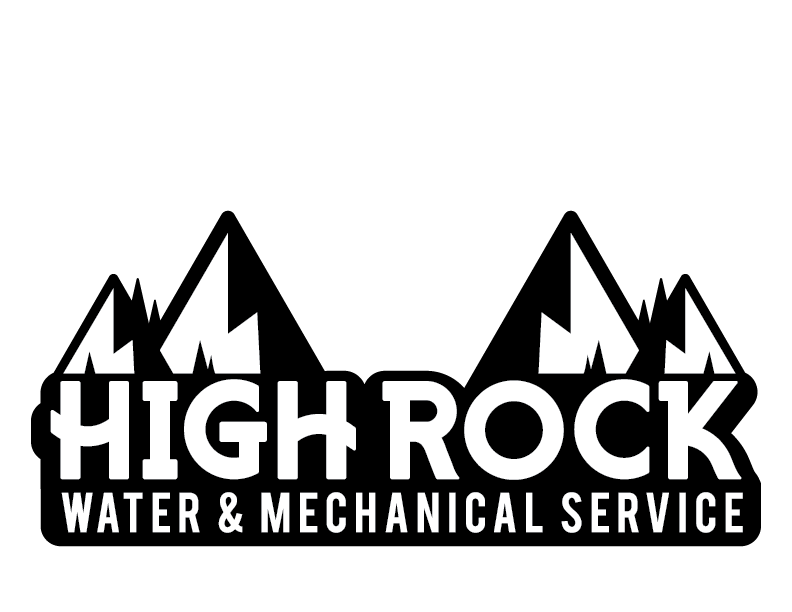WE'RE OPEN 24/7 - CALL US IMMEDIATELY IF YOU HAVE AN EMERGENCY
Understanding Water Pressure in Your Home
Are you having a water pressure problem at home? Proper water pressure is essential for a functional and efficient plumbing system. Whether you're dealing with low water pressure or high water pressure issues, finding the right balance is crucial. In this article, we will share five valuable tips to assist you in effectively adjusting the water pressure in your house.
1. Check the Pressure Regulator Valve
The pressure-reducing valve (PRV) is a critical component that helps to regulate the water pressure entering your home from the municipal supply. Positioned near the main water supply line where it enters your property, this valve acts as a gatekeeper, regulating the flow and intensity of the water pressure throughout your plumbing system.
Its primary function is to protect your plumbing fixtures and pipes from being over-pressurized, which could lead to leaks or other damages. While adjusting the PRV might seem like a simple DIY task, it's essential to consult a professional plumber before making any changes. Incorrect adjustments can compromise the integrity of your plumbing system.
By adjusting the pressure-reducing valve, you can fine-tune the water pressure to achieve the desired level for your household. Follow these steps to check and adjust it:
- Locate the valve: The pressure regulator valve is typically located near the main water supply line where it enters your home. It may be in the basement, crawl space, or near the water meter.
- Test the pressure: Attach a pressure gauge to an outdoor faucet and turn on the water. Read the gauge to determine the current water pressure. Ideally, it should be between 45 to 55 pounds per square inch (psi). If you don’t have a pressure gauge at home, we recommend calling a professional to assist you with any water pressure-related questions.
- Adjust the valve:
Use a wrench to turn the adjustment screw on the pressure regulator valve clockwise to increase pressure or counterclockwise to decrease pressure. Make small adjustments and retest the pressure until you reach the desired level.
2. Inspect and Clean Faucet Aerators
Over time, mineral deposits and debris can accumulate inside faucet aerators, causing disruptions in water flow and impacting water pressure. It's a common issue that homeowners encounter, but fortunately, it can be resolved with a simple cleaning process. Faucet aerators are small attachments located at the end of faucets. They consist of a fine mesh screen that helps regulate the water flow by mixing air with the water stream. This design not only conserves water but also prevents splashing.
Follow these steps to clean them:
- Unscrew the aerator: Remove the aerator from the end of the faucet using pliers or by hand, depending on the design.
- Soak in vinegar: Submerge the aerator in a bowl of white vinegar for a few hours to dissolve mineral deposits.
- Scrub and rinse: Use a toothbrush or small brush to scrub away any remaining debris. Rinse the aerator thoroughly and reattach it to the faucet.
If you have any questions or concerns about this process we recommend contacting a professional.
3. Address Plumbing Leaks
Leaky pipes and fixtures can contribute to low water pressure. Check for any visible leaks in your plumbing system and address them promptly. Here's what you should do:
- Inspect pipes and faucets: Look for signs of dripping or leaking water around pipes, faucets, and toilet connections.
- Repair or replace:
If you discover any leaks, repair or replace the damaged components as necessary. For complex leaks, it's best to consult a professional plumber to ensure proper repairs.
Read this article if you’re interested in learning about toilet and plumbing leaks
4. Consider Water Pressure Booster Systems
If your home experiences consistently low water pressure, installing a water pressure booster system can provide a long-term solution. Here's what you need to know:
- Consult a professional: Contact a reputable plumbing service to assess your water pressure needs and recommend an appropriate booster system.
- Professional installation:
Expert plumbers will install the booster system, ensuring it is integrated with your existing plumbing system correctly.
5. SCHEDULE ANNUAL MAINTENANCE WITH YOUR Professional Plumber
Proper water pressure is more than just a convenience; it's a necessity for the efficient operation of various water-related systems in your home, including well water storage tanks and
water filtration systems. The entire ecosystem needs to work as a cohesive unit to ensure that your home receives water at the right pressure, safely and consistently.
Why is Annual Maintenance Critical?
- Early Detection: Routine annual maintenance allows professionals to detect minor issues before they escalate into expensive problems. Small leaks, subtle pressure imbalances, or sediment buildup could lead to more severe challenges if left unattended.
- Longevity: Well-maintained systems generally have a longer operational life. Consistent checks ensure that all components—from pressure-reducing valves to storage tanks—are in good working condition, thereby prolonging their efficiency and life span.
- Cost Savings: Preventative maintenance can be far less expensive than emergency repairs. In the long run, the investment in annual checks pays off by avoiding costly and sudden issues.
- Systemic Efficiency: Inconsistent water pressure can create a domino effect, disrupting the efficiency of related systems like water storage tanks and filtration systems. Routine checks help in calibrating these interconnected systems optimally.
ENSURING YOUR HOME'S WATER SYSTEMS WORK IN TANDEM
By maintaining these three core components, you effectively create a well-coordinated team that works together to keep your home's water systems running smoothly.
- Pressure-Reducing Valve: This component regulates the water pressure entering your home. Improper adjustments can result in either too low or too high pressure, which can adversely impact other systems.
- Storage Tanks: These serve as reservoirs and play a critical role in maintaining consistent pressure, especially during peak water usage times. Inadequate pressure can lead to incomplete filling and inefficient use of the tank.
- Water Filtration Systems: While these do not directly regulate water pressure, a well-functioning filtration system is essential to prevent sediment buildup that could clog your plumbing and hamper water flow.
To maintain a well-balanced water pressure system in your home, annual professional inspections are highly recommended. High Rock Plumbing is adept at providing comprehensive
plumbing maintenance services that cover all aspects of your home's water system, ensuring that you can rely on it year-round.
WHEN TO CONTACT A PROFESSIONAL PLUMBER TO INSPECT YOUR HOMES WATER PRESSURE
If you're experiencing inconsistencies in water pressure throughout your home, or if you notice unusually high or low water pressure at various fixtures, it's wise to consult a professional. Issues with water pressure can indicate underlying problems in your plumbing system that could lead to more severe issues if left unaddressed. High Rock Plumbing is equipped to conduct comprehensive inspections and assessments of your home's water pressure.
Our expert team can identify the root cause of the pressure fluctuations and offer targeted solutions. Whether it's an issue with your water main, pressure regulator, or another component, we provide professional guidance to ensure the proper functioning of your home's plumbing system. High Rock Plumbing is here to assist you with any concerns you may have. Contact us for professional assistance and enjoy peace of mind in maintaining your home's plumbing system.e peace of mind in maintaining your home's water pressure.
Common Questions About Water Pressure
-
Can you adjust the water pressure in your home?
Yes, you can adjust the water pressure in your home by adjusting the pressure regulator valve. This valve is typically located near the main water supply line where it enters your home. By turning the adjustment screw on the pressure regulator valve clockwise, you can increase the water pressure, and by turning it counterclockwise, you can decrease the water pressure.
-
How do I adjust my main water pressure?
To adjust your main water pressure, follow these steps:
1. Locate the pressure regulator valve, which is usually near the main water supply line where it enters your home.
2. Attach a pressure gauge to an outdoor faucet and turn on the water.
3. Read the gauge to determine the current water pressure.
4. Use a wrench to turn the adjustment screw on the pressure regulator valve clockwise to increase pressure or counterclockwise to decrease pressure. Make small adjustments and retest the pressure until you achieve the desired level.
We recommend calling a professional to assist you with water pressure-related needs, especially when your gauge is lower than 40 pounds per square inch (psi) or high than 70 psi.
-
Is 70 psi too high for water pressure?
In general, water pressure around 40 to 60 pounds per square inch (psi) is considered ideal for residential homes. While some plumbing fixtures can handle higher pressures, 70 psi can be considered high and may lead to increased stress on your plumbing system. It's recommended to consult a professional plumber to evaluate the specific requirements of your plumbing system and determine if a pressure-reducing valve is needed to maintain a safe and optimal water pressure level.
-
What should the water pressure be in a house?
The recommended water pressure for a house is typically between 40 and 60 pounds per square inch (psi). This range ensures adequate water flow for everyday tasks while minimizing stress on the plumbing system. Higher pressures can cause issues such as leaks, damaged fixtures, and excessive water consumption. If you're unsure about the water pressure in your house, it's advisable to consult a professional plumber to evaluate and adjust the pressure as needed to maintain optimal performance and prevent potential plumbing problems.
CT'S Best Well Water Service Professionals
OVER 50 YEARS OF COMBINED EXPERIENCE
Our plumbers have a profound experience on working residential property.
CERTIFIED & LICENSED PLUMBERS
Our plumbers have the latest certifications and trainings to ensure they are educated on new technology.
FREE QUOTES ON ALL SERVICES
At High Rock Water & Mechanical Service, we provide free quotes for any of our customers.
WELL KNOWN IN THE CONNECTICUT AREA
We have been servicing our customers in and around the western and central CT area for over a decade.
HIGHLY RATED ON GOOGLE
Our reviews show how dedicated we are to helping our customers.
100% CLIENT SATISFACTION
Our goal is to have all of our customers to be happy customers and to think of High Rock Water & Mechanical Service whenever they need us.
Call Us With Your Plumbing Questions
High Rock Water & Mechanical Service receives questions about general plumbing questions frequently. Click one of our most frequently asked questions below or go to our FAQ page to get the plumbing answers you need!
-
WHY DOES MY TOILET KEEP RUNNING?
A running toilet can be caused by several issues:
Step 1: Check the flapper. The flapper may be worn or warped, causing water to leak into the bowl. Replace the flapper if it is damaged.
Step 2: Examine the chain. The chain connecting the flapper to the flush handle may be too long or too short, preventing the flapper from sealing properly. Adjust the chain length if necessary.
Step 3: Inspect the float. If the float is set too high, the water level in the tank will be too high, causing continuous water flow. Adjust the float to the appropriate level.
-
WHY IS MY TOILET DRAINING BUT NOT FLUSHING?
This issue may be caused by a partial clog or an issue with the flush mechanism:
Step 1: Check the flush handle and chain. Ensure they are connected and functioning properly.
Step 2: Inspect the flapper and float. Make sure they are functioning correctly and sealing properly.
Step 3: Use a plunger to remove any potential partial clogs in the toilet trap or drain.
-
WHY IS MY TOILET LEAKING FROM THE BOTTOM?
A leak at the base of the toilet may be due to one of the following issues:
Step 1: Check the tightness of the bolts securing the toilet to the floor. If they are loose, tighten them carefully, ensuring not to overtighten and crack the toilet base.
Step 2: Inspect the wax ring. If the wax ring is damaged or not sealing properly, it may cause leaks. Replace the wax ring and reseat the toilet.
-
HOW DO I KNOW IF MY GARBAGE DISPOSAL IS BROKEN?
Signs that your garbage disposal may be broken include:
- Inability to turn on or off.
- Humming noise without any grinding action.
- Slow draining or water backing up into the sink.
- Persistent foul odors, even after cleaning.
- Leaks around the disposal unit.
- Frequent resetting is required.
If you suspect your garbage disposal is broken, it's best to call a professional plumber for an inspection and repair.
Here's How We Work With Our Customers Step By Step
The High Rock Water Process
Below you will learn step-by-step on how our plumbers at High Rock Water & Mechanical Service will take care of your homes plumbing every step up of the way.
1.
SCHEDULE YOUR APPOINTMENT
Give High Rock a call or contact us using our form. Our team will contact you and schedule your appointment.
2.
We Will Diagnose Your Homes Plumbing
Our licensed CT plumbers will come to your home and address the issues that you and your home are facing.
3.
Your Plumbing & Well Repair Begins
High Rock Water will give you the affordable plumbing options. Then the agreed upon repairs will begin.
4.
Your Home Repairs Are Complete
Once the agreed upon repairs are completed, our plumbers will do a walk through with you on everything that was repaired and replaced.
Schedule Your Appointment
To schedule an appointment or if you have questions, call us at (203) 490-6607 or schedule here.
High Rock Water Plumbing Website Submission
We will get back to you as soon as possible.
Please try again later.
MENU
BUSINESS HOURS
- Monday
- Open 24 Hours
- Tuesday
- Open 24 Hours
- Wednesday
- Open 24 Hours
- Thursday
- Open 24 Hours
- Friday
- Open 24 Hours
- Saturday
- Open 24 Hours
- Sunday
- Open 24 Hours
24/7 Answering Service Via Voicemail, Text, & Form Submission For Emergency Services
CONTACT INFORMATION
High Rock Water & Mechanical Service
Phone: (203) 490-6607
Licences: WEJ.0000045-W6 PLM.0289803-P1
